Town Choir: Field notes from Iceland—A curatorial statement by Maiko Yamamoto
February 01, 2017
Hrísey Island in northern Iceland is home to around 100 people year round. To get there, you take a 15-minute ferry across a stunning fjord. As the ferry nears the island, you see a neat village on one end, with a scattering neighborhood including a few industrial buildings, a quaint looking church, brightly painted houses and steam rising from the geothermal swimming pool (If you haven’t been to a pool in Iceland yet, put it on your bucket list). There are a large variety of birds that live on the island. The two cats that live there are not allowed to go outside. I don’t know whether this is to protect the birds or the cats, but we were told a story about a local man who walked into the restaurant one day with blood running down his face and ordered a beer. He was attacked by some Arctic Terns, who apparently have very sharp and pointy beaks. Of course, he was stealing their eggs, so it probably served him right.
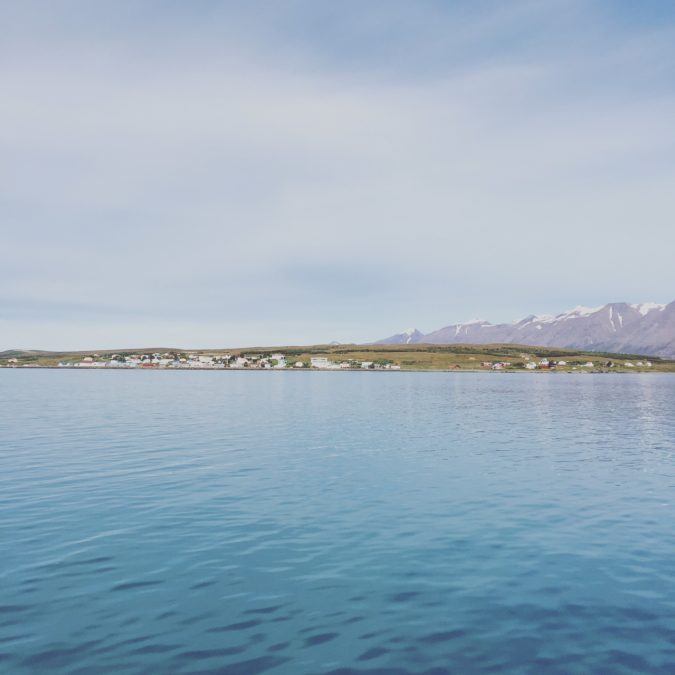
On the eastern side of the island, there is The Energy Zone, which signs posted along the paths will tell you is the second most powerful area in Iceland after Mt. Snæfellsjökull (you should just attempt to say this out loud for fun). You are encouraged to sit on a bench and soak up the power that is all around you. I’m not sure if it was the fresh air coming off the fjord or the wild blueberries I had just eaten, but I did feel rather happy when I was there.
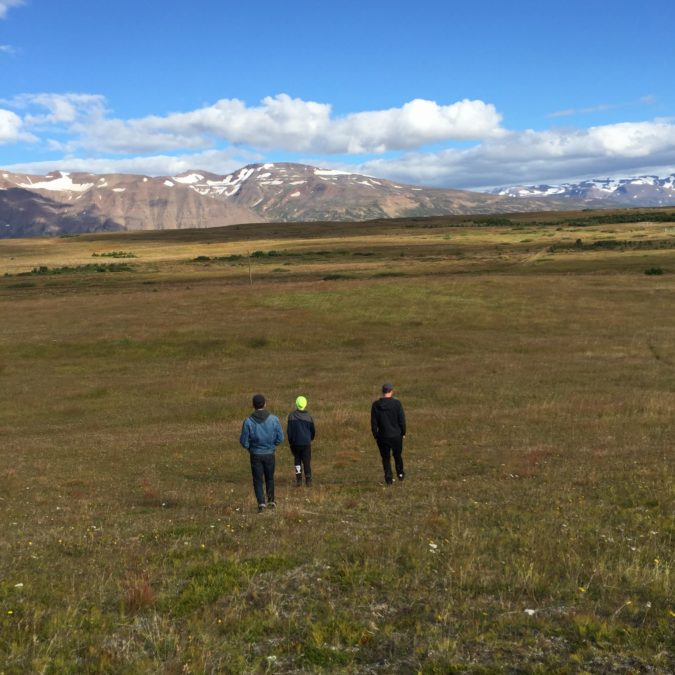
This was the site of our most recent Town Criers project. For a week in August, we traveled back and forth to Hrísey to make the show with members of the community. Our collaborators represented three generations from one family. There was Rósamunda—the sultana of Hrísey—who lives in a house at the top of the village that her husband and her built in the early 70s. Her grandson Emil is the only 12 year-old on the island. He works many jobs, like delivering the TV guide to all the houses in the village, or harvesting the wild anjelica plants that grow around the lighthouse on the north end of the island in the summertime. Rósa and Emil were our two town criers, who each shouted out the words of a person close to them who had moved away from Hrísey. Rósa cried out the words of her son, Halldór, who now lives in Switzerland with his wife and two daughters. Emil cried out the words of Úlfur, a childhood friend who moved with his family to Reykjavík a couple of years ago. Our rehearsal room was the only restaurant on the island, the Verbudin 66, owned and operated by Rósa’s daughter and Emil’s mother, who happen to be the same person.
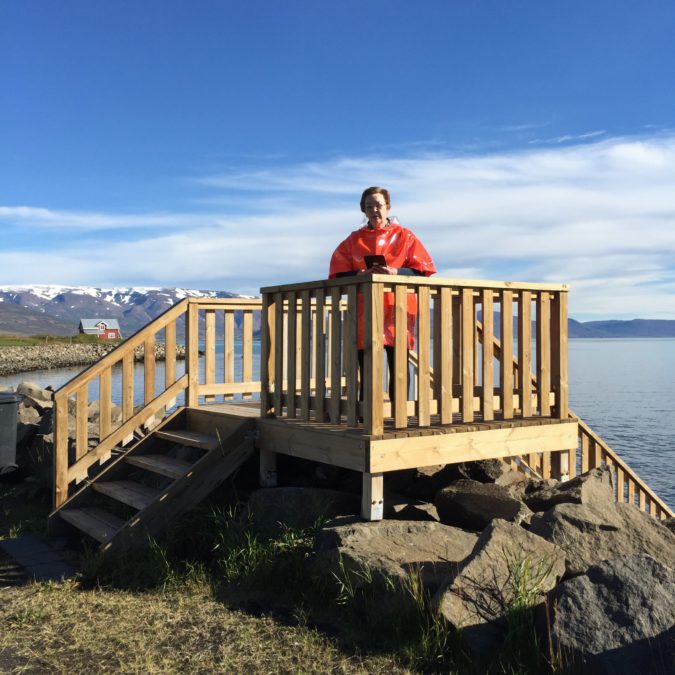
The first time Rósa read her son’s words, she cried. I can only guess that reading about things he remembered of her and of life growing up on Hrísey as ordinary as they may have been—was an emotional experience for her. To cry out in his words about the time he scared her real good, or what he would like to thank her for (a pair of notorious leather pants she made for him, which brought out much laughter from family members) was a powerful energy in itself.
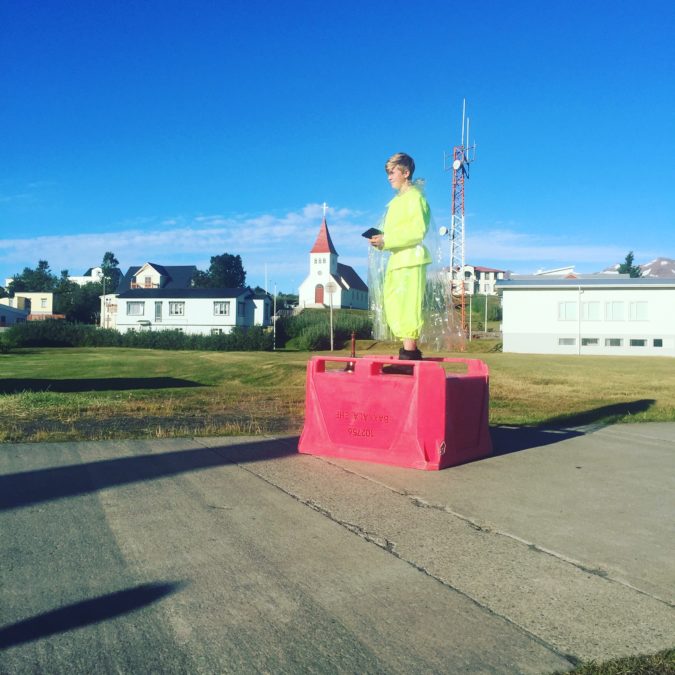
Emil is as shy as any 12-year-old could be. If you’ve ever watched two male tweens hang out together, you’ll know there’s not much dialogue going on. Boys that age don’t talk so much as do things together. So this project became all about Emil replacing his friend with us for that week. He just wanted to hang out. We became a surrogate for his missing friend,
which added another level of meaning to the work.
Beyond being a product that can be presented at a festival or a venue, Town Criers can provide this kind of real connection between a community, a family and friends. As the artists bringing the work, it forces us to depend on strangers to make our art, which as you can imagine naturally causes us some anxiety. To parachute in and completely rely on the friendship, generosity and willingness of a community of strangers is difficult and ultimately, reaffirming. This trust is an irremovable piece of making this work. As we move towards magnifying this process through this new, Town Choir iteration, we are still largely relying on the kindness of strangers to provide an integral piece of the work: writers from across Canada whom we’ve only met by Skype and 50 young singers whom we have to believe will convey the work amidst so many variables. But if we’ve learned anything from being on that little island in the north of Iceland, it is to believe more in the power of energy and how it can bring people together.
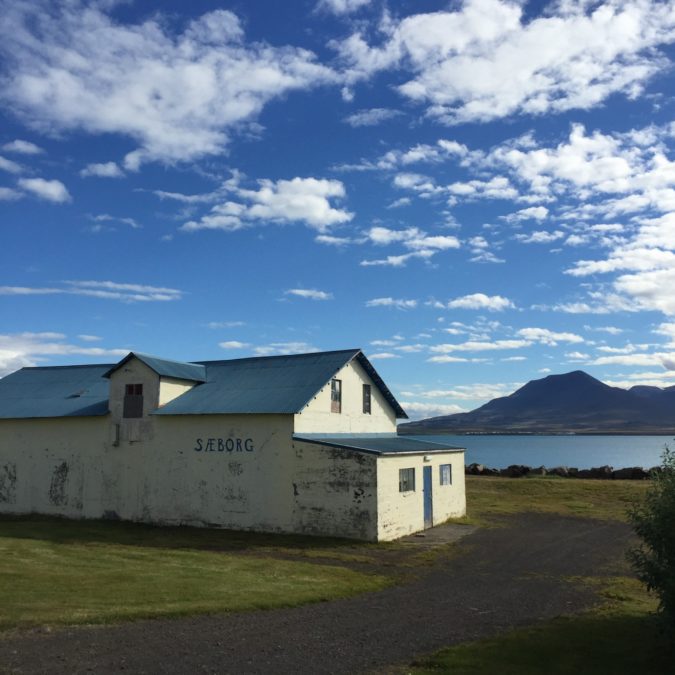
—Maiko Yamamoto
Artistic Director, Theatre Replacement
The most recent iteration of Town Crier has evolved into Town Choir, a free performance with the Vancouver Youth Choir that takes place at different sites around Vancouver.